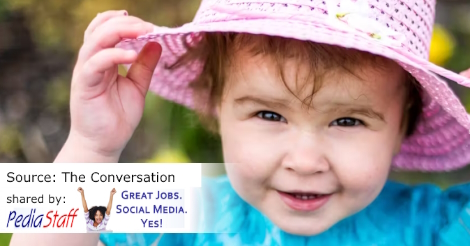SLP Corner: Lot’s of Kids Are Late Talkers. Here’s When to Take Action

Editor’s Note: This Article was written for parents but is a great resource for SLPs to share with the parents and guardians of their kiddos.
[Source: The Conversation; Image Credit Unsplash, CC BY]
As a speech pathologist, university lecturer and parent of young children, I often get asked a version of the following:
My child isn’t talking yet. Is that a problem? And is it my fault?
There is never a simple “yes” or “no” response, as more information is always needed. But by the end of the conversation, I nearly always end up saying “it’s worth looking into”.
The “wait-and-see” approach for late talkers – those who seem to be lagging behind the spoken communication of their peers – recommended by previous generations has shifted as we learn more about early childhood and how intervention can help.
Late talkers are children who do not speak by the usual time that others are off and chattering. They do not have a diagnosis or “primary cause” such as autism spectrum disorder, an intellectual disability or hearing loss.
PediaStaff is Hiring!
All JobsPediaStaff hires pediatric and school-based professionals nationwide for contract assignments of 2 to 12 months. We also help clinics, hospitals, schools, and home health agencies to find and hire these professionals directly. We work with Speech-Language Pathologists, Occupational and Physical Therapists, School Psychologists, and others in pediatric therapy and education.
